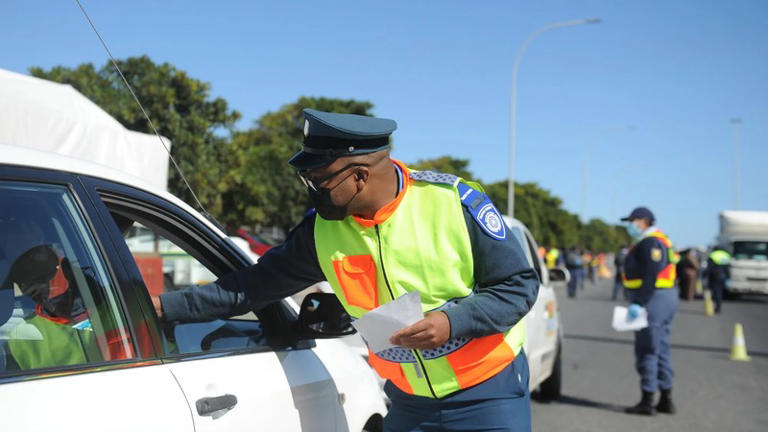News
Aarto Rollout Marks the End of Ignored Traffic Fines in South Africa

The End of Ignored Traffic Fines: Aarto Goes National
For years, South African motorists have learned to play the system, ignoring traffic fines, hoping the notice gets lost in the mail, or counting on administrative chaos to make it disappear. But come 1 December, that era officially ends.
The Administrative Adjudication of Traffic Offences (Aarto) system is rolling out nationwide, linking municipalities and tightening the net on unpaid fines. Simply put, if you don’t pay your fines, you won’t renew your licence and that’s just the beginning.
A Digital Wake-Up Call for Motorists
“From 1 December, a lot of people and companies are in for a very rude awakening,” warns traffic legislation expert Doug Warren, who has spent years training fleet managers and businesses on the new law through his company, SASMiNT.
For holidaymakers, the timing couldn’t be worse. “People are going on holiday in December and will pick up fines in other provinces. In the past, those fines got lost in the system, now they’ll follow you home,” he said.
When the new system activates, 69 municipalities will join the digital enforcement network, with the remaining 126 municipalities following by April 2026. That means traffic fines, even from another province, will now show up in one centralised system.
How It Works: No More Paper, No More Excuses
Forget about fines getting “lost in the post.” South Africa’s failing postal system has forced Aarto to go digital meaning you’ll receive infringement notices via email or SMS.
Here’s what happens next:
-
Once a fine is captured (say, by a traffic camera), you’ll get a notice electronically within 40 days.
-
After 10 more days, it’s legally considered “served.”
-
You then have 32 days to pay, during which you get a 50% discount.
Ignore it, and you’ll lose that discount and pay an extra R100 administrative fee. Ignore it again, and you’ll face an enforcement notice, which could block your ability to renew your car or driver’s licence even if the fine is just R100.
A System Designed to Change Driver Behaviour
“This is going to change forever how we behave on the roads,” Warren said.
For everyday motorists, the consequences are inconvenient. But for professional drivers, like truckers or Uber operators, the stakes are career-ending. If you can’t renew your Professional Driving Permit (PrDP) because of unpaid fines or too many demerit points, you can’t legally work.
Warren said once people start feeling the impact, not being able to renew, losing their jobs, or paying thousands in penalties, “you’ll see people start to change.”
Why Companies Should Be Worried Too
Businesses aren’t off the hook. Under Aarto, companies that own vehicles must nominate the actual driver responsible for a fine or face penalties themselves.
If a company vehicle is unroadworthy, both the driver and the company will be fined. “It’s now crucial for companies to have proper inspection systems and accountability structures,” Warren said.
SASMiNT has been running nationwide workshops, but Warren admits many businesses still underestimate what’s coming. “Some think they’ll fight it in court, but it’s expensive and rarely successful.”
Cameras, Not Cops: Why Bribery Won’t Help
More than 80% of fines in South Africa are caught by cameras, not traffic officers which means the Aarto system will depend heavily on automation, not roadblocks.
Warren acknowledged that corruption fears are valid, with some worrying roadside bribes might increase as motorists try to dodge demerit points. But he said technology is already reducing human interference.
If a fine is issued at a roadblock, motorists have the right to refuse to sign the infringement notice provided they have a valid reason and document everything. “Use your phone camera,” he said. “If you sign, you’re admitting guilt.”
Digital Enforcement, Real Consequences
Aarto has been in development for over a decade, with test runs in Tshwane and Johannesburg revealing logistical challenges and the need for digital reform. The new electronic system is designed to close the loopholes that allowed fines to vanish for years.
By linking municipal databases and enforcing penalties nationally, Aarto aims to make South Africa’s roads safer and its traffic fines unavoidable.
Public Reaction: Mixed Feelings, High Stakes
On social media, reactions to Aarto’s rollout are split. Some motorists welcome stricter enforcement, saying reckless drivers have gotten away with too much for too long. Others are less optimistic. “If the system crashes like eNatis, we’re in trouble,” one user posted on X.
Fleet owners, meanwhile, are scrambling to train staff and update compliance systems before the December deadline.
A New Driving Culture on the Horizon
For decades, ignoring fines was almost a national sport. Now, with Aarto’s digital reach, that luxury is gone. The system promises not only accountability, but also a shift in driving culture.
Whether it succeeds will depend on how efficiently it’s implemented and whether South Africans are ready to adapt to a world where traffic fines follow you home, wherever you go.
{Source: The Citizen}
Follow Joburg ETC on Facebook, Twitter , TikTok and Instagram
For more News in Johannesburg, visit joburgetc.com



























